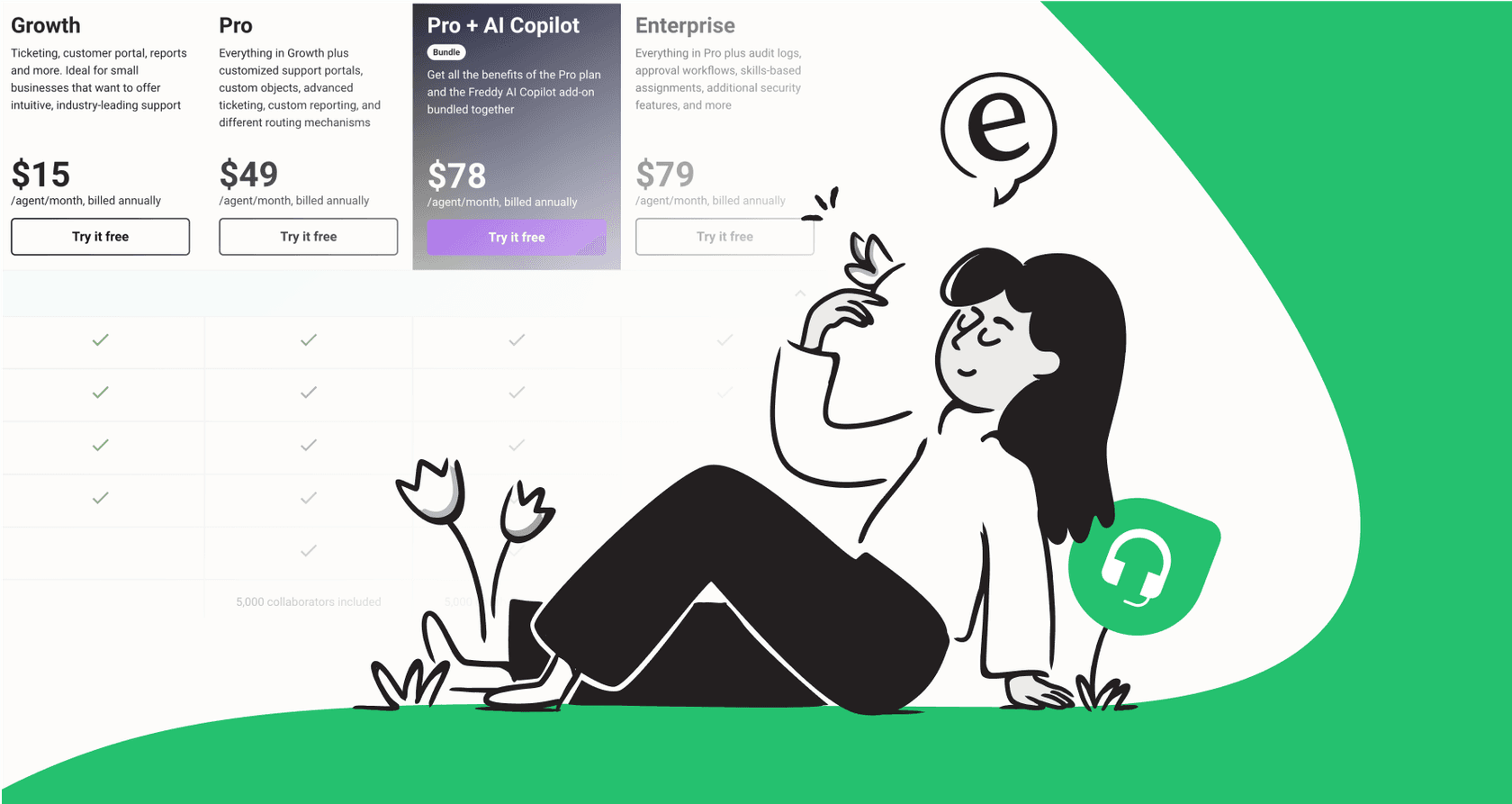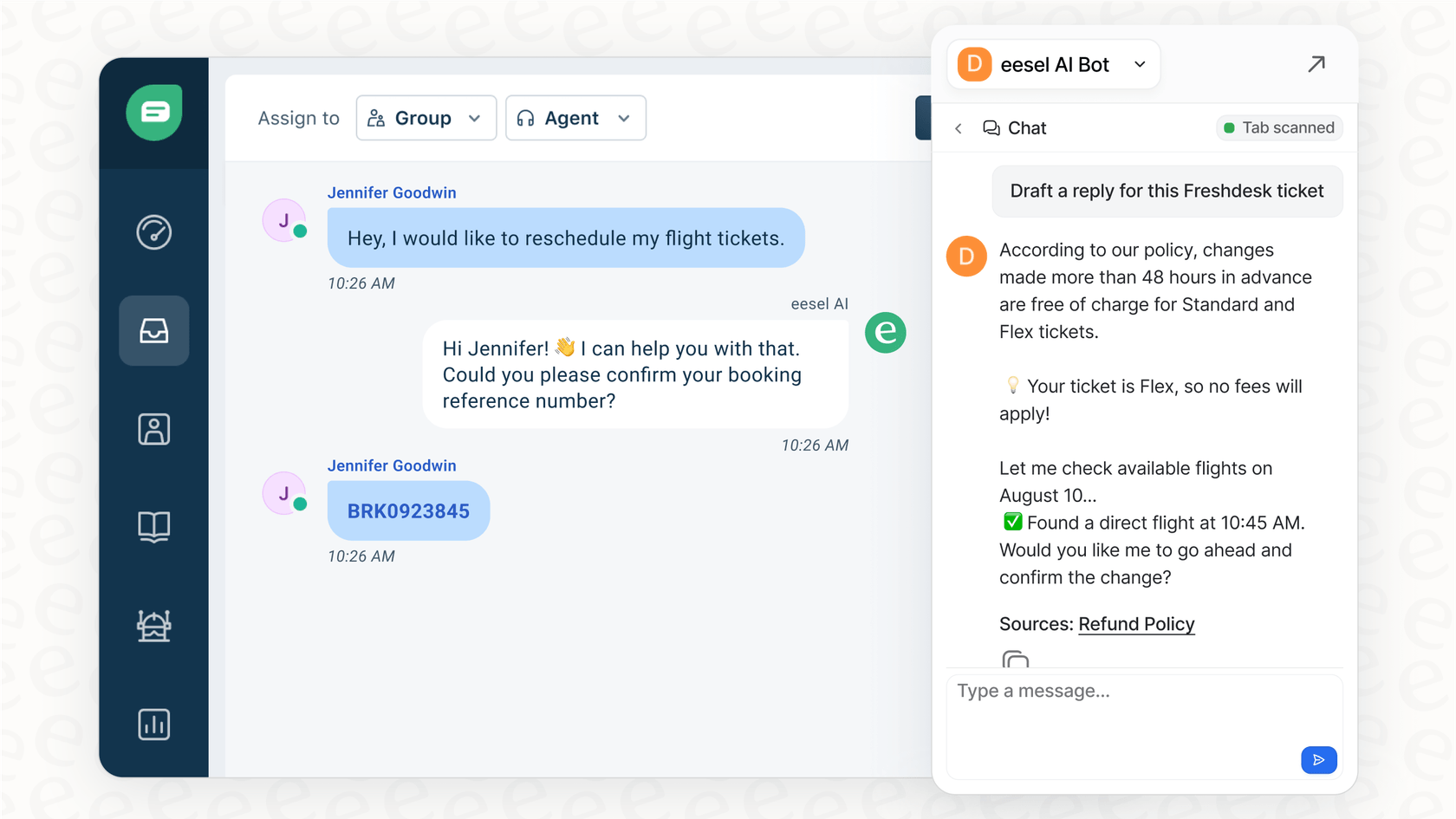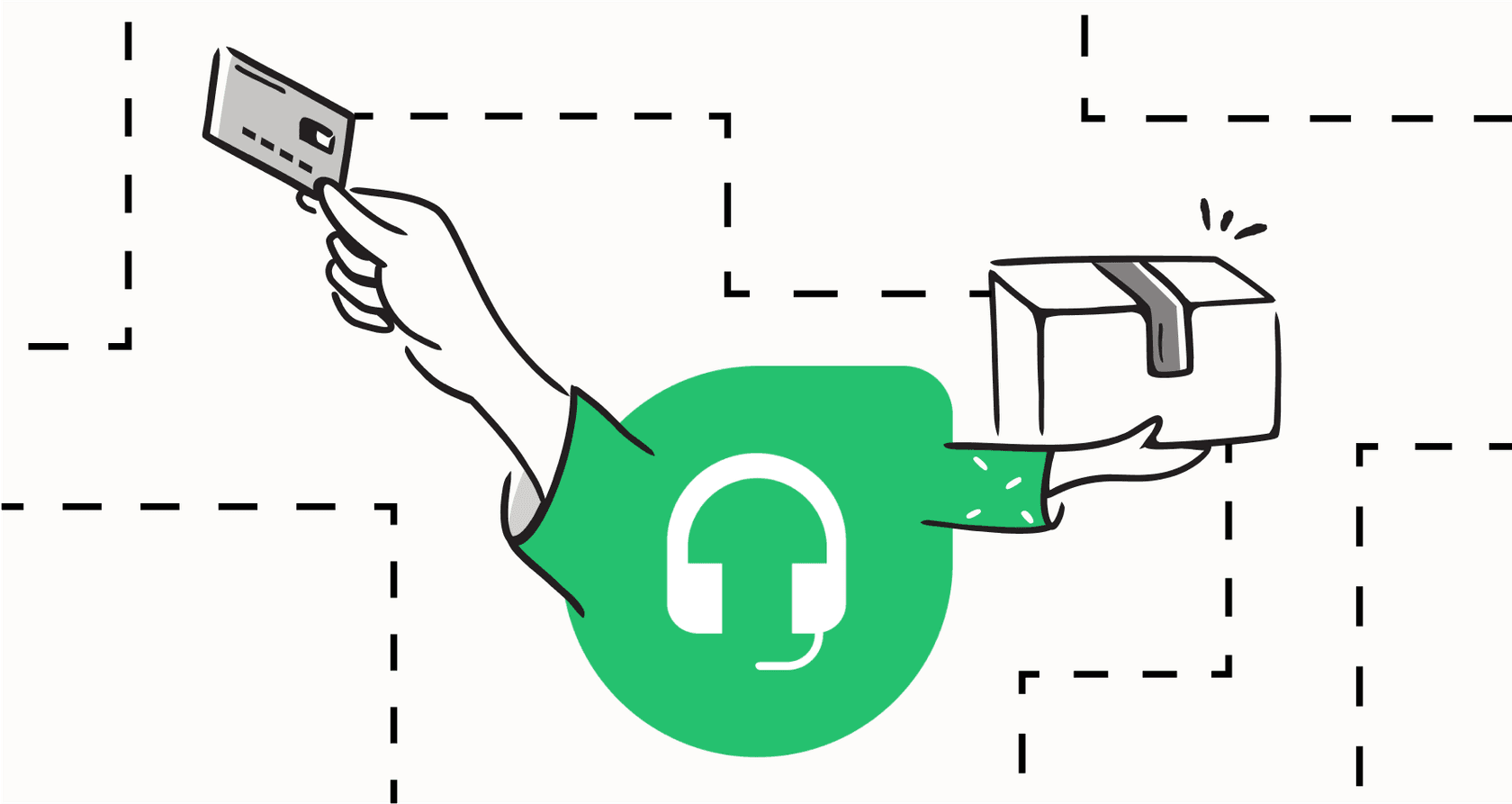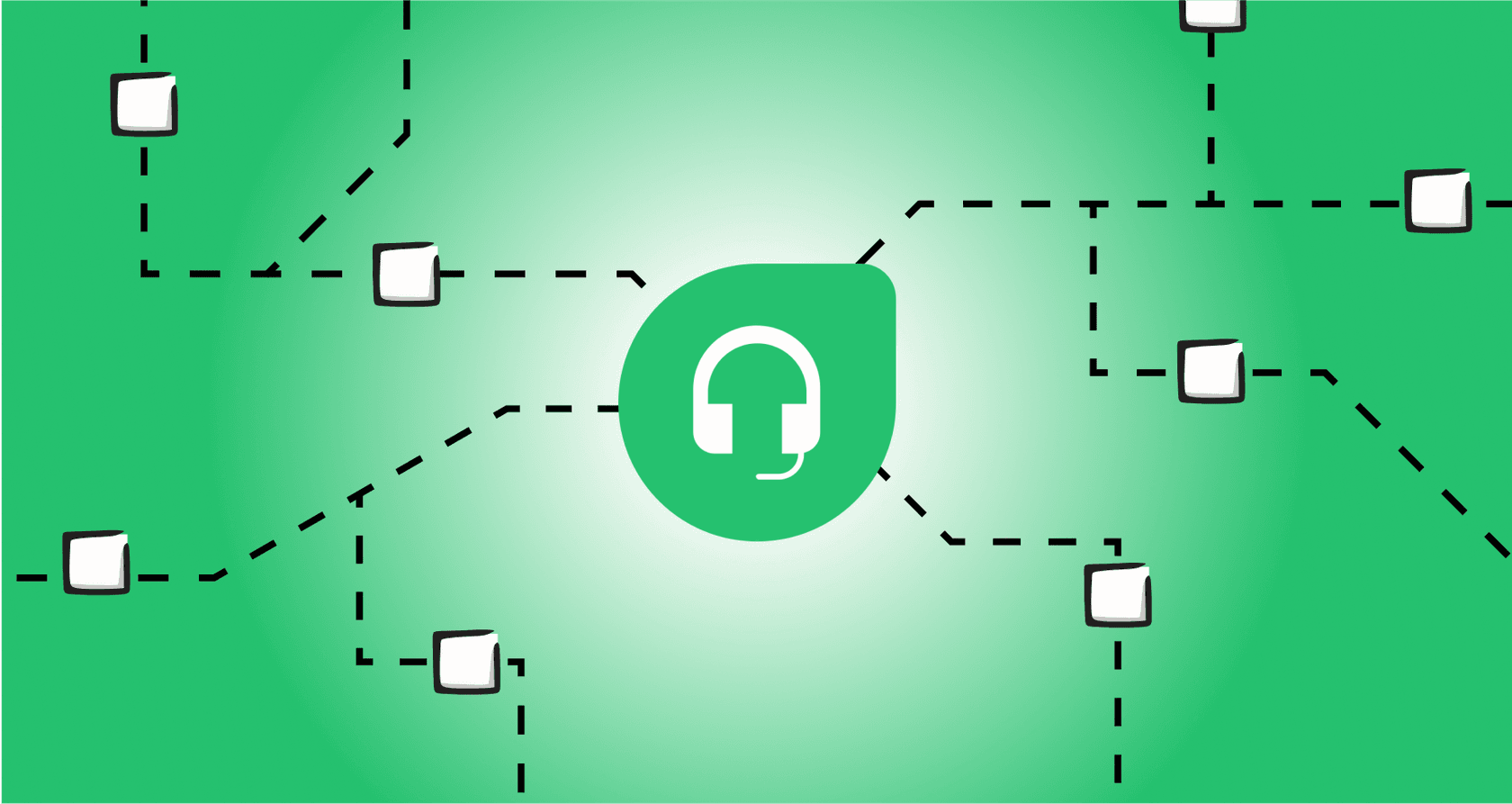A Practical Guide to Freshdesk Data Residency in 2026

Kenneth Pangan

Katelin Teen
Last edited January 16, 2026
Expert Verified

Let's be honest, figuring out where your customer data is stored is an essential part of modern business. With regulations like GDPR, it's a priority you want to get right. If you're using Freshdesk, you've already made a smart move by utilizing a platform that allows you to keep your data in a specific region, like the EU.
However, there is an important detail to keep in mind: when you plug in a third-party app, you should ensure that your data handling remains consistent across your entire stack. You want to make sure your customer data stays within your desired borders to keep your compliance strategy solid.
This guide will cut through the noise. We'll break down how Freshdesk data residency works, point out the key factors to consider, and show you how to add powerful AI to your support setup while maintaining your data security standards.
What is Freshdesk data residency?
In simple terms, data residency is about keeping your company's data physically stored within the borders of a specific country or region. If you're a German company, for example, you likely want to keep your customer ticket info on servers located inside the EU.
When you first sign up with Freshworks (the company behind Freshdesk), they let you pick a data hosting location. You've got several great choices: the US, EU, India (IND), Australia (AU), and the Middle East and Africa (MEA).
For core products like Freshdesk, Freshservice, and Freshsales, you can host things like ticket data, contact info, and knowledge base articles in any of those regions. Freshcaller call data can also be stored there, ensuring a localized experience for your global support operations. Freshteam also offers reliable options in the US and EU.
Key considerations for Freshdesk data residency
Choosing a data center when you sign up is a great foundation for compliance. To make the most of it, there are a few practical aspects to be aware of as you build out your ecosystem.
How third-party apps affect data residency
This is an important factor to consider. When you connect an app from the Freshworks Marketplace, any data it touches is processed by that specific provider.
graph TD subgraph EU Data Center A[Customer Ticket Data] end subgraph US Data Center C[App's Servers] end A -- Data Processed by App --> B(Third-Party App); B -- Data Sent & Stored --> C; style A fill:#d4edda style C fill:#f8d7da
It is a helpful step to verify where your marketplace apps store data. Your main ticket data sits securely on a Freshdesk regional server, but it's always good practice to check if your external analytics or productivity tools process information in other regions. Freshworks is transparent about this in their documentation, noting that API requests from integrations are processed by the respective app providers.
Feature considerations with data residency
Even within the comprehensive Freshdesk ecosystem, choosing a specific data location can influence how certain features operate.
-
Call Recordings: For example, Freshcaller call recordings are typically generated through a centralized process before being moved to your chosen region. This is part of the standard architecture to ensure high-quality call processing.
-
Regional Feature Variations: If you choose EU or AU residency for Freshcaller, some specific features like "Call masking" or "Verified caller ID" might be configured differently based on local telecommunications regulations.
-
Account Data: It's also worth knowing that some administrative data, like your own account and billing information, is often managed in centralized data centers to ensure you can access your billing details from anywhere in the world.
Planning for your data location
If you decide you need to move to a different data center after your initial signup, Freshdesk makes it possible through their support team. They can help you initiate a data migration project to ensure your transition is smooth. Getting your data residency strategy right from the start helps you hit the ground running.
Using AI while maintaining Freshdesk data residency
Bringing AI into your helpdesk is one of the best ways to speed things up and make customers happier. As you implement these tools, it's just a matter of ensuring they align with your residency setup.
The main consideration is that many AI providers use centralized data centers for processing. If you connect an AI app to Freshdesk, you simply want to choose a provider that supports your compliance goals.
graph TD A[French Customer Submits Ticket] --> B{Freshdesk Account}; subgraph EU Data Center B -- Stored Safely --> B; end B --> C(Third-Party AI Tool); subgraph US Data Center C -- Copied & Processed --> D[AI Servers in US]; end D -- Compliance Consideration --> E((!)); style D fill:#f8d7da style E fill:#ffc107,stroke:#333,stroke-width:4px
Imagine this scenario:
-
A customer in France submits a support ticket.
-
That ticket lands safely in your Freshdesk account, hosted on a secure EU server.
-
Then, your chosen third-party AI tool analyzes the ticket.
-
If that tool processes data in another region, you just need to ensure your privacy agreements cover this cross-border transfer.
Support leaders can easily use automation effectively by picking the right partners that respect their data residency requirements.
A secure approach for Freshdesk data residency: Compliant AI with eesel AI
The good news is you can enjoy the benefits of faster workflows while staying fully compliant. eesel AI is an AI platform built to work alongside your existing tools like Freshdesk, providing a secure and complementary solution for your data needs.
It supports your data residency goals by offering EU data residency on its Business and Custom plans. This ensures that any customer data the AI processes stays within the European Union, providing a level of regional assurance that perfectly matches your Freshdesk setup.

On top of that, eesel AI gives you a controlled way to roll out AI:
-
Get started in minutes: Instead of a complex project, eesel AI connects to your Freshdesk account with a simple one-click integration. It works within the Freshdesk ecosystem to enhance your existing workflows.
-
You control the knowledge: You decide exactly what information the AI can use. Point it to your public help center, internal Confluence pages, or specific Google Docs, and it will only use your approved sources.
-
Test with confidence: Before the AI ever interacts with a real customer, you can run it in a simulation mode. eesel AI will analyze your past support tickets and show you exactly how it would have replied, allowing you to fine-tune its performance with zero risk.
A quick look at Freshdesk pricing
Freshdesk offers a range of pricing tiers to suit different team sizes, including a helpful free plan for small teams of up to 10 agents. Their pricing is transparent, and they offer a mature ecosystem of features, including Freddy AI, which can be added to your plan as your needs grow.
| Plan | Price (per agent/month, billed annually) | Key Features |
|---|---|---|
| Free | $0 (up to 10 agents) | Email and social ticketing, knowledge base |
| Growth | $15 | Automation, SLA management |
| Pro | $49 | Omnichannel support, advanced reporting |
| Enterprise | $79 | Skill-based routing, AI capabilities |
Wrapping up your Freshdesk data residency strategy: Build a smart and compliant stack
Data residency is a key priority for many businesses, and Freshdesk provides a reliable foundation for meeting those needs. By choosing the right regional data center and being mindful of how third-party integrations handle data, you can build a secure, world-class support operation.
By pairing a trusted platform like Freshdesk with a security-first tool like eesel AI, you can get the best of both worlds: advanced automation that saves your team time and complete peace of mind regarding where your data lives.
Ready to add secure, compliant AI to your Freshdesk workflow? Try eesel AI for free and see how you can enhance your support while maintaining your data residency standards.
Frequently asked questions
Freshdesk data residency means keeping your customer data on servers physically located within a specific geographic region or country. When you sign up, you select a primary data hosting location (e.g., US, EU), which determines where core data like tickets and contacts are stored securely.
Third-party apps from the Freshworks Marketplace can process and store data. When using an integration, it is important to check where that app processes data to ensure it aligns with your regional compliance goals, even if your core Freshdesk data remains resident.
Yes, certain features like Freshcaller's call recordings are initially processed in the US before being moved to your regional server, and some features like "Call masking" may vary by region. Additionally, non-personally identifiable data, like billing info, is typically managed in centralized data centers to ensure account consistency.
Freshdesk offers the ability to change your data residency location through a dedicated data migration project. You can contact Freshdesk support to initiate this process, and they will help guide you through the transition to your new region.
Many AI tools process data in centralized data centers. If an AI app connected to Freshdesk is used, it's important to ensure the provider offers data residency options that match your regional requirements to maintain a consistent compliance posture.
eesel AI offers EU data residency on its Business and Custom plans, ensuring customer data processed by the AI stays within the EU. It provides a secure, controlled way to integrate AI that complements your existing Freshdesk data residency commitments.
Share this post

Article by
Kenneth Pangan
Writer and marketer for over ten years, Kenneth Pangan splits his time between history, politics, and art with plenty of interruptions from his dogs demanding attention.





